
Luke Morley: “If you chase fashion you end up going round in a little circle.” Photo: Jason Joyce
The Thunder man discusses writing for the legendary hard-rock band, his new solo album and the state of modern music
Luke Morley is best known as the guitarist and chief songwriter of iconic British hard-rock band Thunder. Formed in 1989 out of the ashes of the band Terraplane, which also featured eventual Thunder singer Danny Bowes, they were built on similarly bluesy foundations to groups like Led Zeppelin. Combined with their affinity for a power balled, early albums Backstreet Symphony and Laughing On Judgement Day were instant classics. Songs taken from them like Love Walked In, Dirty Love, and A Better Man remain just as popular today as they were back in the early 90s.
Thunder are by no means a heritage act though, their loyal fan base helped each of their last five records reach the Top 10 of the UK’s Official Album Charts, most recently 2022’s Dopamine. Sadly, with Bowes recovering from a serious accident, the band are currently on a hiatus.
Not one to embrace the enforced sabbatical, Morley had already been working on several solo songs a few years earlier. Building on that start during lockdown he will shortly be releasing his album Songs From The Blue Room. Stylistically versatile, it shows the depth and breadth of Morley as a songwriter. From cowboy waltzes like Errol Flynn to bluesier romps like I’m The One You Want, Morley has had the chance to stretch out in ways both familiar and surprising. Catchy lead single Killed By Cobain finds him reflecting on how the emergence of grunge dented Thunder’s own chances of making it big in America. There’s no bitterness though, he loved every song!
With Morley taking on production duties, as he does with his band, and playing the majority of instruments, Songs From The Blue Room is every bit the solo album. So let’s find out all about how it came together from the man himself…
Click here for more interviews
A bit of an obvious question to begin with, but is The Blue Room an actual place?
“My home studio is painted blue, it’s as simple as that. It sounds a lot more enigmatic than it really is. Pretty much all the songs were written there over a period of a few years. I wrote three songs during a period where I was writing with Thunder that didn’t really fit. I thought they were quite good, so I put them to one side. Then of course lockdown happened and I thought, ‘Well, maybe I can turn this into something.’ That’s how the concept arrived.”
What are the tell-tale signs that a song isn’t for the band?
“Sometimes it can be a vocal thing. Danny, as a singer, is one of the best. He has a very classic, bluesy, rock, British voice in the tradition of Paul Rodgers and Robert Plant, and he’s a real pure tenor. I’ve worked with him most of my life, so I’ve never had to worry too much about singing. But occasionally I have sung. A lot of the time that’s been singing songs on demos for Thunder where I’m singing really high and it’s a nightmare. I’m much more of a baritone, so occasionally I’ll write a tune that sits in that area. I mean, Danny could sing it, he’s like Frank Sinatra, he can sing anything, but it’s not necessarily his comfortable range.
“Or lyrically, sometimes it might not feel like the kind of thing that he would kind of pull off, or maybe wouldn’t suit his character. It’s like putting somebody in the wrong clothes.”
So writing for yourself is different from writing for the band, are there topics you can write about here that you wouldn’t for Thunder?
“There are a couple of very personal songs on this album. In the past, we’ve done Thunder songs which are quite personal, but somehow they’ve felt okay for Danny to sing, because although they were personal they can be generic themes as well. So that’s kind of alright.
“I made another solo album 20 years ago because EMI Japan gave me a large check and I thought, ‘Great, I can do that.’ That was a collection of things; some songs I’d written with Andy Taylor [Duran Duran guitarist and producer for Thunder’s early work], just a load of songs that were laying around. Once I’d decided that I was going to do this album, it was then focusing on how I can sing it, how I could perform it and those kinds of things. I’ve never actually actively done that before, I started at the ripe old age of 60.”
How did that change the way you write?
“Well, the vocal range is a lot lower, so you start working with different keys. Also, I’m a terrible piano player, my dexterity is dreadful on the piano, but I know where everything is. So I spent a lot more time writing at the piano than I normally would with Thunder, where it’s built around the guitar. So that sort of changed it.
“If you’re in a band for 30 years, some things become habits. It’s human nature. So I tried to do it slightly differently, or pick up a different instrument. From a recorder to a mandolin, all sorts of stuff. I tried a few different things, and tried to look at it slightly differently.”
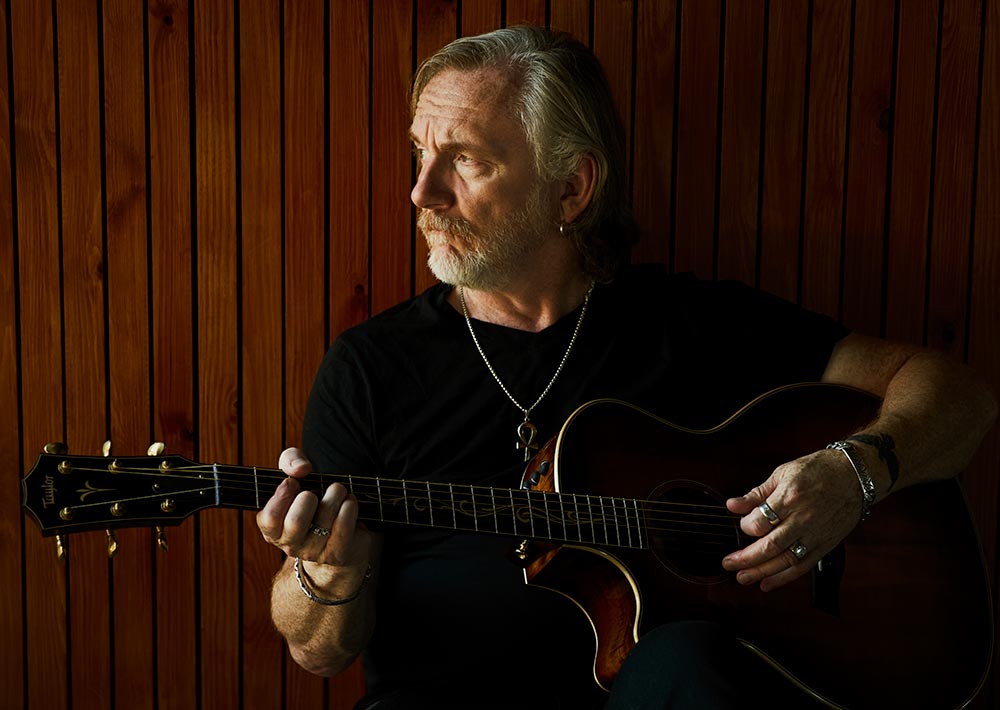
Luke Morley: “There’s no point making music if you don’t really believe in it.” Photo: Jason Joyce
Will it always be music first or do you have lyrics ready to go?
“Both. I have a note in my phone where I jot down original ideas – a cute headline in the paper, a little quote from a film, something that somebody says… and it will sit there. Then, if I come up with a musical idea, it’s the usual thing… sitting with a guitar waiting for something to land. Sometimes when I’m doing that, I’ll just flick through my notes and go, ‘That works,’ the meter and the right amount of syllables. It’s a strange business writing a song, sometimes I’ll write a complete thing in five minutes, sometimes it will take me five weeks.”
Do carve out time for songwriting or is it something that you’re doing all the time?
“It’s pretty much what I do. Funnily enough, I’ve just taken a year off because we had two Thunder albums in very close proximity and then this album. I felt a little bit fried and was starting to repeat myself, so I needed to take a little break. I’m just starting to get back into it, which is a bit scary. When you haven’t done it for a year it can be like, ‘God, I’ve lost it.’ It takes a while to get those particular muscles working again. Thankfully, it’s all starting to flow again.”
Are there certain things you need to have around you or a place you need to be in order to stimulate those muscles?
“I like to be somewhere quiet. We don’t have kids, but my wife works in the film business. She was away for eight months and I’ve never written so much in my life. She was in Romania on a TV show and because of COVID protocols, I couldn’t visit her and she wasn’t allowed to come back. So that was quite an interesting place to be for a writer.
“All I need is a quiet room and a guitar and I’m off. I’m quite self-disciplined. If I’m in a writing period, I’ll be up at nine o’clock. I’ll sit down at ten and will normally sit there until three or four in the afternoon. With any creative pursuit, it’s very difficult to be on all the time – you have bursts… For instance, I find that I’m much better at arranging and organising early in the morning. But I’m not very good at thinking laterally about lyrics or any kind of emotional thoughts, it’s all action. Whereas in the evening, I tend to come up with more ideas that are spiritual or alternative. That’s how my brain works. It’s very logical in the morning and completely rubbish in the evening, but useful for writing songs.”
You mentioned that your piano playing is not quite as good as your guitar play, can that be helpful in terms of songwriting in terms of making you solve problems in a different way?
“Definitely. You play C major on a guitar and you sit down and play it on the piano, it sounds completely different. Everything’s different about it. It’s an interesting instrument the piano, much easier in some ways, because the notes are all there for you. With a guitar, there’s a physical connection because you’ve got both hands on it. It’s a very different thing. Certain things that sound fantastic on the guitar sound terrible on the piano, and vice versa.
“I find that if I have the germ of an idea that’s quite good in my head, sometimes I’m playing it on the guitar but it’s not doing it. If I move to the piano and play the same chord sequence a lot of the time I’ll go, ’Ah, there it is.’ I don’t know why that is, and I don’t want to know why that is.”

Luke Morley: “If you write songs you’re trying to reflect life, so you have to be alive to everything that’s going on around you.” Photo: Jason Joyce
And when you do have the germ of an idea, do you have already have the finished style in mind? Does a song lead you to where it wants to finish, or do you take it there?
“A lot of the time I’m hearing the big picture as I’m writing it. It’s almost like people that paint, they’ll do the background and then the foreground, but they know what the overall thing is going to be. I suppose it’s like that. So I’ll start with the background, the style of the song, and then things closer to the front of the image, like what the vocal is doing, what the guitars are doing… That will be guided by the concept of the song. It normally starts as a concept, as well as a journey.”
Are you someone who likes to listen to music to inspire you to write music? Or do you need a clear head when you’re writing?
“I was born in 1960 and my parents were both art teachers. They were quite young and it was all stuff going on in the house, loads of music: Beatles, Stones, Kinks, Dylan… I absorbed all that, as children do. Then I was a teenager in the 70s, which was a great time musically. There were so many fantastic things in that period. Everything from Black Sabbath to Stevie Wonder, so many different styles.
“What I tend to do now is I’ll have a couple of radios on in the house, one upstairs, one downstairs, tuned to different stations, and I’m just wandering about making a cup of tea and doing what I do. Occasionally I’ll go, ‘That’s quite interesting. What’s that?’ Though I have to say that doesn’t happen very often.’”
Why do you think that is?
“I don’t think it’s a great time for music, over here. If you listen to Radio 1 or Radio 2, it seems to be a hell of a lot of repetition and formulaic writing. A lot of the radio stations outside of the BBC are terrified of upsetting advertisers. So playlists can be very bland. You have to go looking for music a lot more now. Which is great if you’re a young kid and you spend hours on YouTube or Spotify. I tend not to so much anymore.
“I wait for music to tap me on the shoulder, because I’m so disappointed by a lot of it. I don’t want to be. My wife will often say, ‘This is good. What do you think of this?’ And I’ll say, ‘It’s alright, but it was done better 20 years ago by so and so.’”
If you’re not being influenced by what you’re hearing on the radio does that help you to write the songs that you want to write?
“From just a general kind of career point of view… we’d been in other bands before Thunder that hadn’t really had much success. With Thunder, we just thought, We’re going to do what we like and if it doesn’t work out, at least we tried.’ Our attitude was that we were going to make the music we liked. As soon as we did that, we started to achieve a bit of success.
“That philosophy is still true for me. There’s no point making music if you don’t really believe in it, especially if you’ve got to get up on stage and perform it. If it’s bollocks, people will sense that very quickly. I’ve always done what I liked and hoped other people liked it too.”
That’s alluded to on Killed By Cobain a little bit, in terms of music industry shifts and doing your thing for better or worse…
“That was peculiar actually. Although grunge was a major thing in America, it wasn’t really so much here. I think people here saw it as new rock bands and a fashion thing with goatees and tats and everything. But musically, it wasn’t such a thing, probably because we had punk rock 20 years before which actually felt quite seismic at the time. Maybe that was because I was younger and less cynical.
“We went backwards and forwards to America quite a lot in the early 90s, watching that happen; watching all the radio formats change overnight and watching traditional rock suddenly became terribly uncool. America is the land of rock ‘n’ roll, isn’t it? So bands like Aerosmith, Whitesnake, and even Guns N’ Roses being seen as very uncool for a little while, it was quite interesting.
“Our timing was pretty appalling. It was great in England and Europe and Japan, but it was pretty bad in America. That’s what the song is about. With the first album, we had a hit single that was all over MTV like a rash and then grunge happened. That’s the one thing the music industry teaches you, how to accept disappointment and move on gracefully.”
How do you take something which is so deeply personal and try to make it interesting for an audience?
“I suppose it’s sort of gallows humour. When things go badly, or not according to plan… maybe it’s got something to do with my South London upbringing, you just learn to laugh at adversity. You can’t worry about those kinds of things, especially something as subjective and fickle as the music industry. It’s fashion, and if you chase fashion you end up going around in a little circle. It’s kind of back to what we were talking about before, you have to do what you believe and hope that it works and the timing falls in a good place. Our timing and grunge, it was disappointing.
“It’s quite funny actually, we had a conversation with a guy who was a president at Geffen at the time. They were our label in the States and Nirvana were also on Geffen [DGC Records]. When all this happened, our tour support was pulled, our marketing budget was pulled and we were dead in the water. So anyway, in our conversations with the guy at Geffen, he says, ‘I’ll give you some advice. It’s only worth worrying about the things you can affect, don’t worry about things you can’t.’ And that’s very good advice. You laugh at it and you move on. You put it down to experience and all the other clichés.”
Can songwriting be a healing balm in those situations?
“Absolutely. It’s a great outlet for frustration, aggravation, misery, all those negative things in the human spirit. All aspects are much easier to deal with if you write songs, or if you have some sort of creative outlet to channel them into. At times of emotional difficulty or great happiness, it’s a great thing to pick up a guitar and go ‘Right, I’m going to let this come out in whichever way it does.’”
Are you also a people watcher, listening to conversations and observing life going on around you, always in songwriting mode?
“Completely. If you write songs you’re trying to reflect life, so you have to be alive to everything that’s going on around you. If I’m in a period of intense writing, that kind of thing gets heightened. You’re even more aware of what’s going on, maybe than you would be normally.”

Luke Morley: “All I need is a quiet room and a guitar and I’m off.” Photo: Jason Joyce
Do you have any examples where something that you heard or saw triggered a song or a lyric?
“The one that’s leapt into my head is a very early Thunder song called Dirty Love and a line about a girl being over a man like a cheap suit. I heard that in a pie and mash shop and I just thought, ‘What a brilliant line, I’ve got to get that in a song.’
The other one is the first single from the Thunder album All The Right Noises called Last One Out Turn Off The Lights. It’s about Brexit and England, or Britain, not being what it was. That line actually came from a mate of mine who is from New Zealand. He said that somebody had written on the wall in an airport in New Zealand, ‘Last one out, turn off the lights,’ because Kiwis love to travel. I thought that was quite good.”
When you’re writing songs for an album, at what point do you start seeing them as a sequence rather than as individual songs?
“The sequence is massively important. When you look at all those fantastic albums from the 70s… you’d go to parties as a teenager and you’re too shy to talk to girls, you’d sit down and read the cover sleeve.
“It’s funny, we live in a world now where people listen to tracks individually. Spotify for instance, I have lots of things that I don’t like about it, but a vast music library is a wonderful thing. But I find it very odd when it plays things slightly out of sequence or will leap from one thing to another. Particularly with stuff that I’ve known for years, like Beatles albums. If I hear Beatles songs out of context, I find it quite worrying. I mean, imagine Sgt. Pepper in a different order! Sequencing is important.”
“Young people now listen to music in a different way. Everything must change, that’s the way it is, but I used to really enjoy it in the 70s when you’d go out and buy an album from one of your favourite bands and maybe the first listen, you’d go, ‘What the fuck is this?’ You didn’t get it. You’d persevere with it and then slowly, things would start happening and a week later your view of it was completely different. But it takes some discipline to do that. You can’t just go, ‘I don’t like that, next.’”
How does that album approach affect the songwriting? Are you thinking, ‘There’s a hole here that needs a ballad and we need to shift the tempo here so I’ll write an uptempo song’?
“I don’t think I’ve ever consciously written a song because I thought an album was missing a certain area or a tempo. You write the best songs you can and then you arrange them the best way you can. Even when I’ve only got four songs, I’m sequencing them already. It’s to do with keys and tempos and all sorts of stuff. But sequencing is a massive thing.”
And does your role as producer help or hinder the process? Do you miss having someone else there to help?
“Creative relationships can be very successful and can work really well. With Thunder, Andy Taylor produced our first album and half the second album. We knew what we wanted to do after that, so we continued that way.
“I think having a small studio set up at home allows you the luxury of being able to try lots of different things. With things like string arrangements or horn parts, I’ll try lots of different sounds and different things. Once I know the song is essentially finished, it’s like, ‘Well, what can we do with it?’ Having a studio in your house allows you to do that. In the old days when studios were two grand a day, you had to be very together when you went in and know exactly what you were trying to do.”
“One of the great things about the home studio and digital technology is that it’s allowed people to sit at home and do a lot of experimenting, going down blind alleys and going, ‘Well scrap that, that didn’t work.’ So I think it makes it easier for anybody producing yourself if you’ve got that facility at home.”

Luke Morley: “Maybe that’s what drives us on, trying to make that connection with people.” Photo: Jason Joyce
How about the advantages of working with a producer?
“It’s really good when you’re young to have somebody who has been there, made records, and knows how to get the best out of the studio. Because the first few times we were in studio, when I was in my 20s, I was very naive about how it worked. It just looked like a table with a load of knobs on it. Everything seemed to take a long time…putting the mics around the drum kit, getting the right guitar sound… But you do learn all those things, and making records is a craft.
“So I think it’s a good thing for young people and some people like to be produced throughout their career, abdicating some of the responsibility so they can worry about other things. But I enjoy the whole process from writing to producing, getting the musicians to perform the best they can. Particularly with singers, it’s an interesting thing. How do you interpret a lyric? How do you shift the meter and the tempo? All those kinds of things are fascinating to me, so I love doing it. And I’m an absolute control freak, which is the truth of the matter.”
What’s the plan for the album and for the rest of the year?
“Well, that’s a good point. With Thunder, we’re in a bit of a holding pattern. Danny’s recovering from a brain injury. He’s doing really well but it’s going to be quite a lengthy process. We can’t put a date on that. I was with him last week for dinner and he’s much better than he was. He’s getting there but we don’t know when he’s going to reach the end of that particular road. So in the meantime, this album gives me something else to think about.
“In terms of gigs and stuff, I may do a couple later in the year. But for me to do it justice I’d probably need a six-piece band and I don’t want to do it if I can’t do it properly. So if I can find another way of presenting the material, which I might… I’ve been messing around at home with little acoustic variations. But I’m not decided on that one yet.
“This album started because I’d written these three songs, and my wife said to me during lockdown, ‘Why don’t you turn that into an album?’. It wasn’t like, ‘I must make a solo album.’ It wasn’t like that at all, it was more that it would give me something to do. Now it’s actually coming out, along with all the things that come with releasing an album like, ‘Will people like it/will people hate it?’ that’s quite exciting. Even at my age I still get that buzz when a record comes out. I’m looking forward to seeing how it’s received. Hopefully, it might even open a few doors that perhaps were closed to Thunder. People might be slightly more open-minded about it.”
Last question. You mentioned Dirty Love earlier, why do you think songs like that and Love Walked In endure?
“That’s a tough one. To be honest with you, I think if anybody actually knew the answer to that question, we’d all be rich. It’s a strange thing when you’re out on tour and do a meet-and-greet and people will come in and say, ‘We walked down the aisle to Love Walked In.’ It’s amazing and really flattering. Those kinds of moments as a songwriter are fantastic.
“Some things just connect. Some of it is about the timing, what’s happening in the world, the prevailing conditions in your life. God knows, I don’t know what it is. But we’re all looking for that all the time. Maybe that’s what drives us on, trying to make that connection with people. You just don’t know when things are going to connect. It’s impossible to say, but that’s the Holy Grail? That’s what we’re all looking for. Fingers crossed I find it a few more times in my career.”


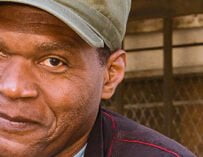
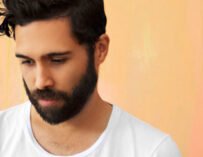




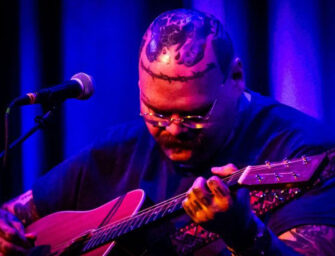
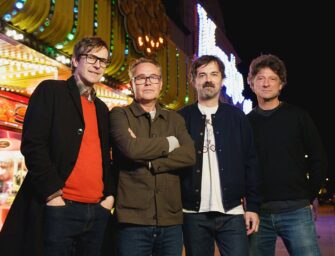





















Related Articles